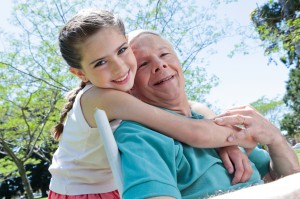Accueil >
Elderly Health Care > Other Age-Related Health Conditions
Pneumonia, a common and potentially severe respiratory infection, can strike anyone, regardless of age or background. It poses a particular threat to the elderly, young children, and individuals with weakened immune systems. This lung infection is caused by a variety of pathogens, including bacteria, viruses, and fungi. In this article, we'll delve into the world of pneumonia, exploring its causes, symptoms, and the importance of early diagnosis and treatment.
 The culprits: Bacteria, viruses, and fungi
The culprits: Bacteria, viruses, and fungiPneumonia is an infection that inflames the air sacs in the lungs, causing them to fill with pus or other fluids. This can lead to symptoms such as cough, fever, difficulty breathing, and chest pain. One of the remarkable aspects of pneumonia is the multitude of culprits behind it:
Bacterial pneumonia: This is one of the most common forms of pneumonia and can be caused by various bacteria, with Streptococcus pneumoniae being a primary offender. Bacterial pneumonia typically presents with sudden and severe symptoms.
Viral pneumonia: Viruses such as influenza (the flu), respiratory syncytial virus (RSV), and the novel coronavirus (COVID-19) can lead to viral pneumonia. These infections can range from mild to severe.
Fungal pneumonia: Fungi like Pneumocystis jirovecii can cause pneumonia, particularly in individuals with weakened immune systems. This type is often seen in people with conditions like HIV/AIDS.
Pneumonia can manifest with a range of symptoms, including:
Risk factors for pneumonia include age (very young or very old), weakened immune systems, chronic health conditions, smoking, and recent respiratory infections. Proper vaccination, such as the pneumococcal and influenza vaccines, can help reduce the risk of developing pneumonia.
Early diagnosis and treatment are crucial in managing pneumonia effectively. Healthcare providers typically use a combination of physical exams, medical history, and diagnostic tests, such as chest X-rays or blood tests, to confirm pneumonia.
Treatment depends on the type of pneumonia and its severity:
Rest, staying hydrated, and using over-the-counter medications to relieve symptoms like fever or cough are often recommended to aid recovery.
In conclusion, pneumonia is a potentially serious lung infection that can be caused by a range of pathogens, including bacteria, viruses, and fungi. Recognizing the symptoms, understanding the risk factors, and seeking prompt medical attention are crucial steps in effectively managing pneumonia. By staying informed and practicing good respiratory hygiene, we can reduce the risk of this common respiratory infection and protect the health of ourselves and our loved ones.
Don't hesitate to contact us at 343 309 5289. We can help you choose the right establishment for you and assist you in your search.

Find a suitable senior residence